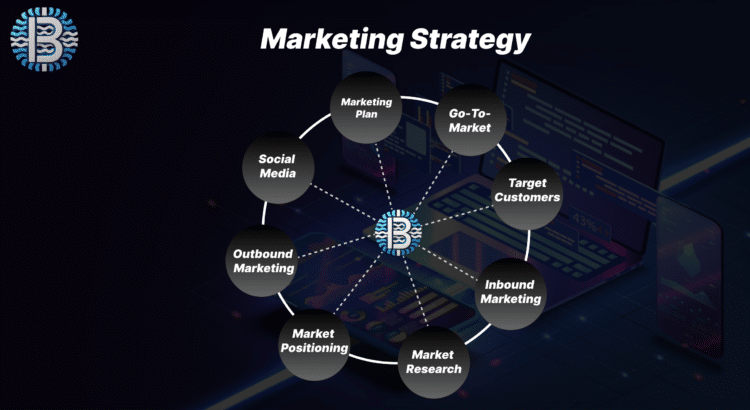Introduction In today’s competitive market, a strong marketing strategy is crucial to business success. Whether you’re a startup or an established company, investing in a comprehensive marketing approach can significantly impact your brand visibility, customer engagement, and ultimately your financial results. In this comprehensive guide, we will discuss the best effective marketing strategies that will help you elevate your business, strengthen your online presence, and attract a loyal customer base.
For businesses looking to gain a technical edge, the choice of web development technology can significantly impact visibility and user experience. Learn why Next.js outperforms no-code and low-code solutions in creating fast, modern websites.
Understanding the Importance of Effective Marketing Strategies
Marketing is the foundation of any successful business. It encompasses a wide range of activities aimed at promoting products or services, building brand awareness, and increasing sales. Here’s why effective marketing is essential:
Brand Awareness
Marketing helps create and maintain a strong brand identity. It ensures that your target audience recognizes and remembers your brand. Learn more about building brand awareness.
Building brand awareness today often includes embracing AI to better understand customer behavior and engagement trends. Explore AI overviews to see how it can enhance your branding strategy.
Customer Engagement
Through various marketing channels, businesses can engage their customers, understand their needs, and build lasting relationships. Discover customer engagement strategies.
Competitive Advantage
A well-executed marketing strategy can give your business a competitive edge by setting you apart from the competition. Find out how to analyze the competition.
Revenue Growth
Effective marketing drives traffic, generates leads, and sales, which directly translates into revenue growth. Check out our guide on increasing revenue through marketing.
SEO optimization plays a crucial role in driving organic traffic and revenue growth. Discover how Next.js enhances SEO to increase visibility and drive business results
Key Elements of an Effective Marketing Strategy
To develop an effective marketing strategy, you need to focus on several key elements. Each of them plays a vital role in achieving your business goals.
Market Research
Market research involves gathering and analyzing data about your target audience, competitors, and market trends. This information helps you make informed decisions and tailor your marketing efforts to meet your audience’s needs.
Identify Your Target Audience
Understand who your ideal customers are, their demographics, preferences, and pain points. Use tools like Google Analytics and SEMrush to collect insights.
Analyze the Competition
Study your competitors’ strategies, strengths, and weaknesses. This helps you identify opportunities and threats. Conduct a SWOT analysis to better understand the market. Learn more about competitor analysis.
Stay Updated with Trends
Keep an eye on industry trends and changes in consumer behavior to stay relevant. Follow industry blogs, news sites, and influencers to stay on top of the latest developments. Read our latest trend report.
Branding
Branding is more than just a logo or slogan; it’s the overall perception of your business. A strong brand creates a lasting impression and builds trust among your audience.
Develop a Unique Value Proposition (UVP)
Clearly define what sets your business apart from the competition. Highlight the benefits and solutions you offer that others don’t. Check out examples of unique value propositions.
Create a Consistent Brand Identity
Ensure consistency in your brand’s visuals, messaging, and tone across all channels. Develop brand guidelines to maintain uniformity in your marketing efforts.
Build Brand Loyalty
Focus on delivering exceptional customer experiences to build loyalty and brand advocates. Engage your customers through personalized communication and loyalty programs. Discover our tips for building brand loyalty.
Digital Marketing
Digital marketing is essential in today’s internet-driven world. It involves promoting your business through various digital channels to reach a wider audience.
Search Engine Optimization (SEO)
Optimize your website for search engines to improve visibility and organic traffic. Use relevant keywords, create high-quality content, and build backlinks. Learn more about SEO techniques.
Effective SEO is critical in today’s digital landscape. Enhancing your site’s visibility and performance involves advanced techniques, which can be further explored through insightful resources on improving your online strategy. For more advanced techniques, check out Moz’s SEO blog for insights.
Content Marketing
Create valuable, relevant, and consistent content to attract and retain your target audience. This includes blog posts, videos, infographics, and more. Check out our guide on content marketing.
Creating valuable content can greatly impact website profitability. If your site isn’t meeting revenue goals, you may need to revisit your content approach as we discuss in this article.
Social Media Marketing
Leverage social media platforms to connect with your audience, share content, and build a community. Use tools like Hootsuite to manage social media campaigns.
For more on building an engaged social media audience, visit HubSpot’s blog on social media strategies to stay current.
Email Marketing
Use email campaigns to nurture leads, promote products, and maintain customer relationships. Segment your email list to send personalized messages. Discover our email marketing tips.
Pay-Per-Click (PPC) Advertising
Invest in paid ads on platforms like Google Ads and social media to drive targeted traffic to your website. Monitor campaign performance and adjust bids for better ROI. Discover the benefits of PPC advertising.
Offline Marketing
While digital marketing is essential, don’t overlook the power of offline marketing. It complements your online efforts and helps you reach a local audience.
Print Advertising
Advertise in newspapers, magazines, and flyers to increase brand awareness. Use attractive designs and clear calls to action.
Events and Trade Shows
Participate in industry events and trade shows to network, showcase your products, and generate leads. Learn how to make the most of trade shows.
Direct Mail
Send personalized mailers to your target audience to create a tangible connection. Track response rates to measure effectiveness. Explore direct mail strategies.
Analysis and Performance Tracking
Tracking and analyzing marketing activities is crucial to understanding what works and what needs improvement.
Tracking and improving SEO performance is essential. Implement these 10 key SEO tips to ensure your website performs at its best.
Set Key Performance Indicators (KPIs)
Define KPIs to measure the success of your marketing campaigns, such as website traffic, conversion rates, and social media engagement. Read our guide on setting KPIs.
Use Analytics Tools
Utilize tools like Google Analytics, SEMrush, and social media analytics to track performance and gather data.
Adjust Strategies
Based on your analysis, adjust your marketing strategies to optimize results and achieve your goals. Be flexible and ready to pivot when necessary. Learn how to adjust your marketing strategies.
Conclusion
A solid marketing strategy is key to any business looking to succeed in today’s competitive environment. By understanding your audience, building a strong brand, utilizing both digital and offline marketing channels, and continuously analyzing performance, you can create an effective marketing plan that drives growth and success.










